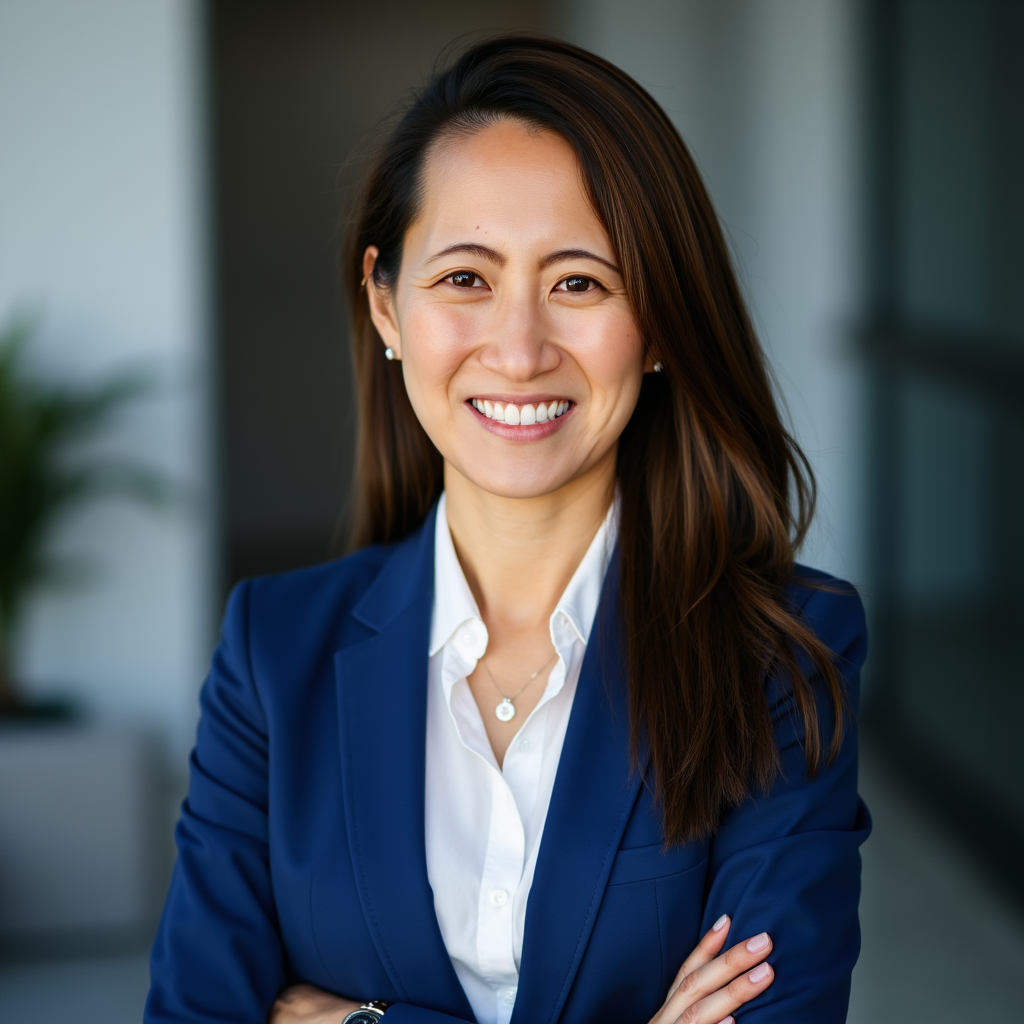
Dr. Amanda Chu
Dr. Amanda Chu
Amanda Chu MD – Endometriosis Specialist
Summary: Dr Amanda Chu MD is a highly regarded endometriosis specialist based in New York City. With a patient-centered philosophy, Dr Amanda Chu MD emphasizes that no single theory fully explains endometriosis, though she draws from retrograde menstruation, coelomic metaplasia, and emerging research in epigenetics and immune dysfunction to guide individualized care. She specializes in excision surgery, supported by thoughtful use of continuous progesterone-only medications to manage symptoms while avoiding more aggressive hormonal therapies when possible. Dr Chu takes a holistic approach to persistent pain after surgery, focusing on reducing inflammation and addressing musculoskeletal and neuropathic pain through non-invasive strategies. She acknowledges the importance of treating coexisting conditions and embraces complementary medicine as part of a broader, multidisciplinary care plan. Patients can expect compassionate, personalized treatment that integrates the latest research and whole-person care principles.
City: New York City, USA
Philosophy of Endometriosis Care: No single theory adequately explains all presentations of endometriosis, but I believe that certain theories play more of a role in individual patients. Older theories have merit, e.g., retrograde menstruation and coelomic metaplasia, but we are constantly increasing our knowledge of endometriosis, & I think that epigenetics and immune dysregulation will become increasingly important.
What type of surgery do you perform for endometriosis?: Excision
Medication: Currently, hormonal medications are a useful and, at times, necessary adjunctive for cyclic symptoms and ovarian cyst prevention. Typically, I utilize continuous progesterone-only medications with the goal of amenorrhea/anovulation. I prefer to avoid GnRH agonists/antagonists for long-term use, given their severe side effect profile.
Approach to Persistent Pain After Surgery: Postoperatively, I prefer to focus on finding less invasive ways to decrease inflammatory, musculoskeletal, & neuropathic pain rather than repetitive procedures. I believe in treating all etiologies of pain, including often coexisting comorbidities, and well as being receptive to approaches that expand beyond traditional Western medicine. Finally, the mental & social impact of endometriosis cannot be overstated, and a multidisciplinary team is essential.

Dr. Jurgis Vitols
Dr. Jurgis Vitols
Jurgis Vitols – Endometriosis Specialist
Summary: Dr Jurgis Vitols is a leading endometriosis specialist based in Riga, Latvia, known for his precise surgical expertise and individualized approach to care. With a foundation in the genetic-epigenetic theory of endometriosis, Jurgis Vitols believes in tailoring treatments to each patient’s unique biology and goals. He specializes in excision surgery and prefers cystectomy for ovarian cysts, sometimes using laser vaporization when preservation of healthy tissue is a priority.
Dr Jurgis Vitols carefully considers each patient’s preferences when recommending medical management. For those avoiding surgery, he may suggest oral contraceptives or progesterone pills. After surgery, he personalizes follow-up care based on fertility goals, occasionally using short-term GnRH therapies when appropriate. In cases of persistent pain, Dr Vitols incorporates hormone therapy and may refer patients to pain specialists for additional support. His patient-centered, evidence-based care makes him a trusted expert in endometriosis treatment.
City: Riga, Latvia
Philosophy of Endometriosis Care: Genetic-Epigenetic Theory.
What type of surgery do you perform for endometriosis: Excision; Both. I may use ablation only for ovarian cysts. For ovarian endometriosis, I may use laser vaporization on the hilum of the capsule or for all of the cyst capsules in case the cyst enucleates badly and there is a high risk of damage to normal ovarian tissue. My preferred approach for ovarian cysts is cystectomy.
Medication: Depends on the patient’s wishes and complaints. For patients who don’t want to have surgery, I recommend the use of combined oral contraceptive pills or progesterone pills. If symptoms persist, I recommend surgical treatment. After surgery, I recommend long-term use of combined oral contraceptive pills or progesterone pills for patients who don’t wish to become pregnant and have had ovarian endometrioma to reduce recurrence. For patients who wish to become pregnant after surgery, sometimes I recommend short use (maximum of 3-4 months) of GnRH analogs or GnRH antagonists to improve their chance of having a natural conception. I never prescribe long-term use of GnRH medication.
Approach to Persistent Pain After Surgery: Combined oral contraceptive pills or progesterone pills. Suppose this doesn’t help—pregabalin or amitriptyline. Patients with persistent pain symptoms are referred to pain specialists.

Dr. Liliana Puycan
Dr. Liliana Puycan
Dr Liliana Puycan – Endometriosis Specialist
Summary: Dr Liliana Puycan is a dedicated endometriosis specialist based in Lima, Peru. With a patient-centered approach, Dr Liliana Puycan focuses on the coelomic metaplasia and immunological theories, emphasizing how inflammation and immune responses contribute to endometriosis. She combines expert excision surgery with holistic care that includes progestin or bioidentical hormone therapy, lifestyle changes, and anti-inflammatory nutrition. Dr Liliana Puycan takes a comprehensive view of treatment, before and after surgery, encouraging physical activity, reduction of endocrine disruptors, and management of visceral fat to address hyperestrogenism and improve long-term outcomes. Her commitment to whole-patient care and thoughtful attention to individual needs makes Dr Liliana Puycan a trusted resource for those navigating the complexities of endometriosis.
City: Lima, Peru
Philosophy of Endometriosis Care: The theories of endometriosis that focus my treatment are the theory of coelomic metaplasia and the immunological theory since I think that the disease grows or proliferates in an inflammatory-immune environment, originating in certain patients susceptible to the disease.
What type of surgery do you perform for endometriosis: Excision
Medication: I begin treatment with the use of progestins and/or bioidentical progesterone, in addition to changes in nutrition and lifestyle to reduce the inflammatory effect of the disease.
Approach to Persistent Pain After Surgery: Before the surgical treatment, I made sure that the patient had already started a complete diet and physical activity regimen, which would continue postoperatively. Understanding the importance of reducing the intake of endocrine disruptors and reducing the percentage of visceral fat that leads to hyperestrogenism is essential for the long-term management of this type of patient.
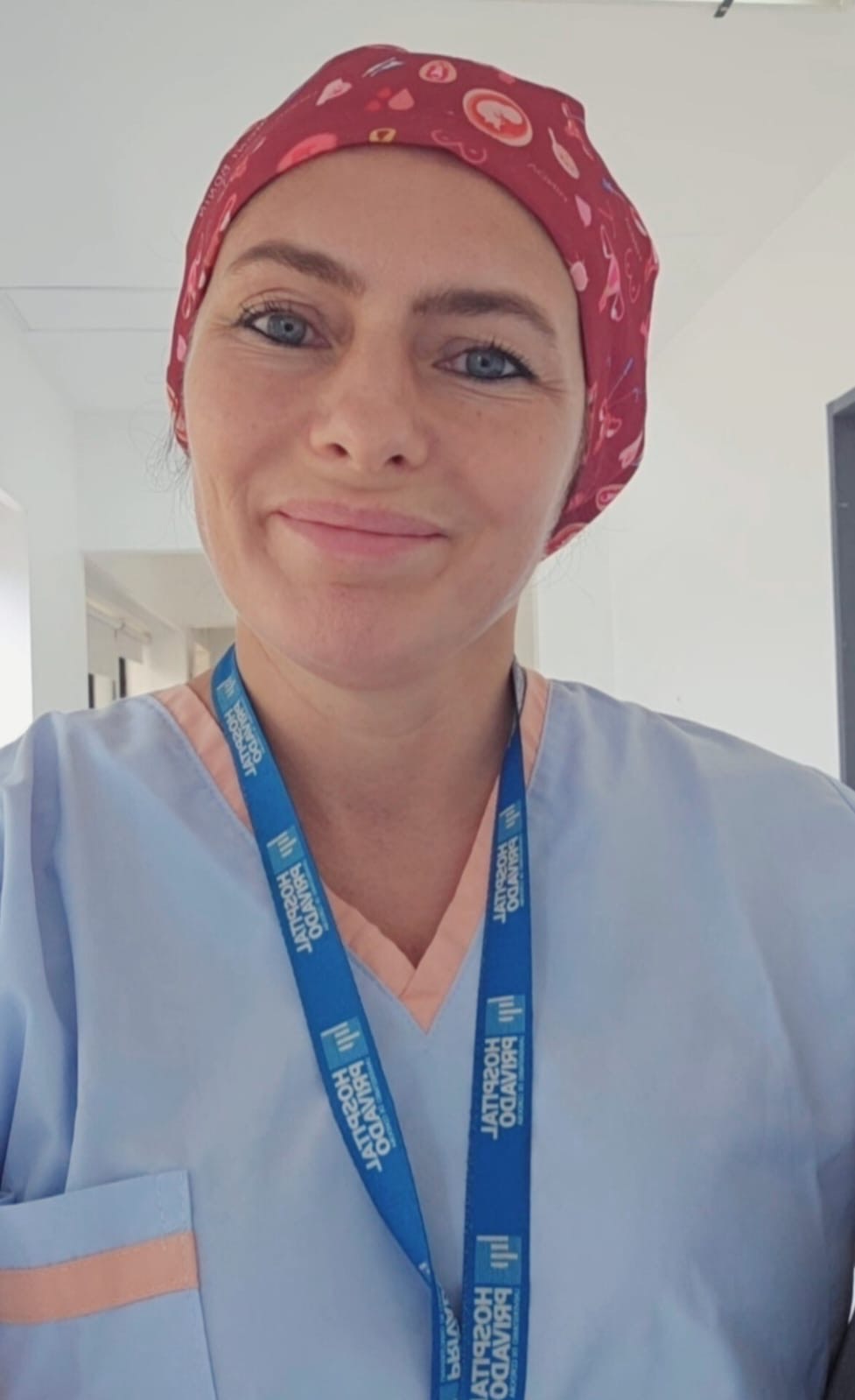
Dr. Mónica Cristina Bonin
Dr. Mónica Cristina Bonin,
Doctor Bonin – Endometriosis Specialist
Summary: Dr Mónica Cristina Bonin is a dedicated endometriosis specialist based in Villa Allende, Córdoba, Argentina. With a deep understanding of this complex condition, doctor Bonin approaches care through a multifactorial lens, focusing on the metabolic-hormonal profile, immune system, genetics, and environmental influences. Dr Mónica Cristina Bonin specializes in excision surgery and designs personalized treatment plans to help patients regain quality of life. Her medical approach includes hormonal therapies such as dienogest and levonorgestrel devices, as well as supportive supplements like vitamin D, magnesium, and omega-3. For persistent pain after surgery, doctor Bonin integrates pelvic floor rehabilitation, nutrition and exercise plans, and targeted imaging to detect recurring or missed lesions. Dr Mónica Cristina Bonin also collaborates with other specialists when needed to ensure comprehensive, whole-person care for long-term pain relief and health improvement.
City: Villa Allende, Córdoba, Argentina
Philosophy of Endometriosis Care: It’s a multifactorial disease with a strong relationship with the metabolic hormonal profile, the immune system, the environment, and the genetics.
What type of surgery do you perform for endometriosis: Excision
Medication: Hormonal treatment (dienogest, drospirenone, levonorgestrel device), supplementation (vitamin D, magnesium, omega 3).
Approach to Persistent Pain After Surgery: Pelvic floor rehab, metabolic changes with nutrition, exercise and supplementation, referral to another specialist looking for another cause, and of course a very good imaging of the pelvis looking for new lesions
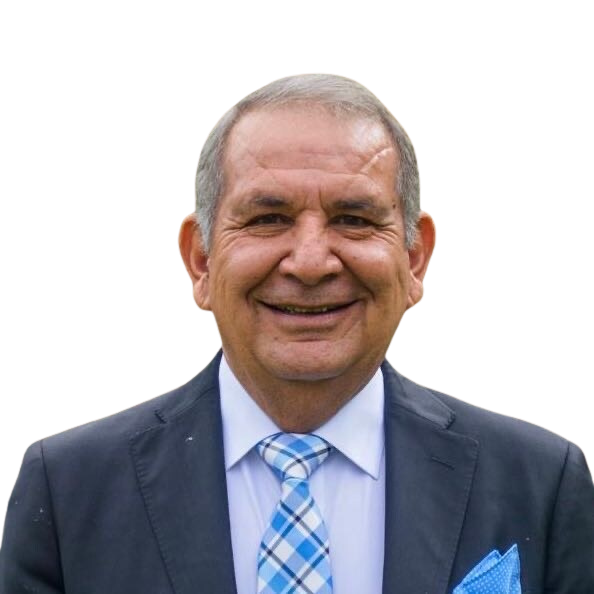
Dr. Marco Antonio Lopez Zepeda
Dr. Marco Antonio Lopez Zepeda
Doctor Zepeda – Endometriosis Specialist
Summary: Dr Zepeda, is a highly regarded endometriosis specialist based in Guadalajara, Jalisco, Mexico. With extensive expertise in excision surgery, Dr Zepeda is committed to providing personalized care rooted in leading theories of endometriosis, including retrograde menstruation and coelomic metaplasia. Doctor Zepeda tailors treatment plans based on each patient’s symptoms, fertility goals, and IDEA Protocol results, ensuring thoughtful, patient-centered solutions. He utilizes a range of medical therapies such as Dienogest, GnRH analogs, anovulatory agents, and progestins to support healing and pain management. For those experiencing persistent pain after surgery, Dr Zepeda focuses on individualized care strategies that consider long-term health and well-being. With a warm, professional approach and a deep understanding of endometriosis, Dr Zepeda offers trusted expertise to patients seeking relief and improved quality of life.
City: Guadalajara, Jalisco, Mexico
Philosophy of Endometriosis Care: Retrograde Menstruation (Sampson Theory), Celomic Metaplasie (Iwanoff and Meyer Theory), Linfatic or Vascular Dissemination, and Embryonic Remains Theory.
What type of surgery do you perform for endometriosis?: Excision
Medication: Dianogest, GnRh Analogs, Anovulatories, Progestins
Approach to Persistent Pain After Surgery: Depends on the patient´s symptoms, desire for childbearing, and the results of the IDEA Protocol.

Dr. Sadikah Behbehani
Dr. Sadikah Behbehani,
Sadikah Behbehani – Endometriosis Specialist
Summary: Dr Sadikah Behbehani is a dedicated endometriosis specialist based in Costa Mesa, California, known for her compassionate and expert care. Dr Sadikah Behbehani focuses on thorough endometriosis excision surgery to remove the disease at its roots while prioritizing fertility preservation. Dr Behbehani carefully removes endometriosis from critical areas such as the fallopian tubes, ovaries, bowel, bladder, and diaphragm, aiming to minimize damage and support patients’ reproductive health. She emphasizes understanding the embryologic origins of endometriosis to provide personalized treatment. After surgery, Dr Sadikah Behbehani recommends medication only when necessary, such as muscle relaxants or nerve pain treatments, avoiding narcotics entirely. For persistent pain, Dr Behbehani adopts a multidisciplinary approach, coordinating with specialists in pain management, physical therapy, and gastroenterology, while closely monitoring each patient’s recovery with ongoing care every few months. Her patient-centered philosophy ensures compassionate, tailored support for lasting relief.
City: Costa Mesa, California
Philosophy of Endometriosis Care: It doesn’t matter where it came from; what matters is that it’s removed. Endometriosis, like cancer, can spread via multiple channels. Also, pleuripotent stem cells in the pleura and peritoneum can lead to its development. Most endometriosis patients are born with these cells that differentiate into endometriosis with hormone stimulation. It’s nothing that women did that led to their development. We have to understand embryologic origin to understand endometriosis growth because endometriosis can be associated with congenital anomalies in the genitourinary and reproductive organs.
What type of surgery do you perform for endometriosis: I perform endometriosis excision surgery to remove the endo from its roots, but I also focus on preserving fertility. I remove endometriosis from around the fallopian tubes and ovaries routinely. My surgical strategies focus on minimizing damage to the ovaries to help preserve ovarian reserve and help with future fertility. I also perform tubal surgery when necessary. It’s important to appropriately excise the disease while minimizing damage to reproductive organs. I also excise endometriosis from the bowel, bladder, and diaphragm and perform an appendectomy when necessary.
Medication: I only recommend medication after surgery after we’ve ensured that all endometriosis has been appropriately excised. For bladder or muscular spasms, I prescribe cyclobenzaprine. For nerve pain, I prescribe gabapentin. I have a good referral team and, when necessary, will refer to pain management to take care of residual pain from endometriosis nerve, and muscle damage. I never prescribe narcotics, and I don’t send my patients to anyone who will.
Approach to Persistent Pain After Surgery: I work with them until their pain reaches a tolerable level. I refer them to specialists as needed (pain management, GI, PT), but I continue to oversee their treatment plan with visits q3-6 months.

Dr. Juan Carlos Canton Romero, PhD MD
Dr. Juan Carlos Canton Romero, PhD, MD
Dr Juan Carlos Canton Romero – Laparoscopic Surgeon, Endometriosis Specialist
Summary: Dr Juan Carlos Canton Romero is a leading endometriosis specialist and laparoscopic surgeon based in Guadalajara, Mexico. Known for his personalized, compassionate care, he uses a patient-centered approach grounded in the Mullerianosis theory. With expertise in minimally invasive procedures, Dr Juan Carlos performs excision surgeries tailored to each patient’s age, fertility goals, and disease stage. He also manages symptoms with medications like dienogest, GnRH inhibitors, and oral contraceptives. For persistent pain after surgery, Dr Juan Carlos recommends a holistic plan that may include physiotherapy, yoga, and ongoing hormonal support. Patients value his commitment to preserving fertility when possible and his thoughtful, evidence-based care. With Dr Juan Carlos, individuals experiencing endometriosis can expect clear communication, tailored treatment, and support throughout their healing journey. Whether seeking surgical expertise or long-term symptom relief, Dr Juan Carlos provides the experience and empathy patients need to feel heard and supported.
City: Guadalajara, Jalisco, Mexico
Philosophy of Endometriosis Care: Mullerianosis
What type of surgery do you perform for endometriosis?:
Ovarian ablation in young patients to preserve hormonal function and uterine in those who wish to preserve fertility; ovarian resection in postmenopausal patients. Uterine resection is for those who do not wish to preserve fertility. In patients with early-stage cancer with a good prognosis of the ovary and cervix and a desire to preserve fertility, conservative surgery was performed.
Medication: Oral analgesics, antispasmodics, prostaglandin inhibitors AINES, continuous oral contraceptives with Dienogest (Qlaira), continuous dienogest, GnRH inhibitors for 3–6 months, and Levonorgestrel IUD.
Approach to Persistent Pain After Surgery: Physiotherapy, rehabilitation, exercise like yoga, continuous contraceptives, and/or dienogest.
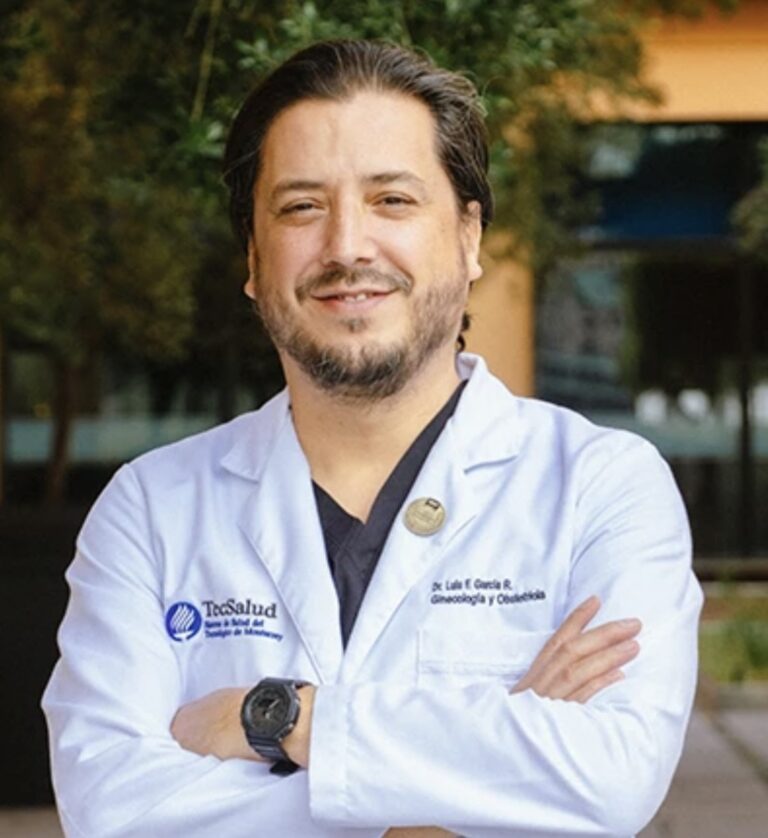
Dr. Luis Fernando García
Dr. Luis Fernando García, M.D.
Dr Fernando Garcia – Endometriosis Specialist
Summary: Dr Fernando Garcia is a trusted endometriosis specialist based in San Pedro Garza García, Nuevo León. Known for his compassionate care and clinical expertise, Dr Fernando Garcia offers a comprehensive, patient-first approach to managing endometriosis. With a deep understanding of the condition’s multifactorial origins—including Sampson’s theory, coelomic metaplasia, and lymphatic dissemination—Dr Fernando Garcia combines medical and surgical options tailored to each patient’s unique needs.
He specializes in excision surgery and often recommends oral contraceptives, progestins, and nonsteroidal anti-inflammatory medications as part of a well-rounded treatment plan. For patients experiencing persistent symptoms after surgery, Dr Fernando Garcia collaborates with a multidisciplinary team, including pain management experts and pelvic floor physiotherapists, to provide lasting relief and improve quality of life. Patients benefit from his warm, personalized approach and commitment to evidence-based care at every stage of their journey.
City: Nuevo León, San Pedro Garza García NL
Philosophy: Multifactorial. Sampson´s theory, chelomic methaplasia, hematologic and linfatic disseminatio
What type of surgery do you perform for endometriosis? Excision

Dr. Ana Gabriela Sierra Brozon
Dr. Ana Gabriela Sierra Brozon
Dr Ana Sierra – Minimally Invasive Gynecological Surgery
Summary: Dr Ana Sierra is a skilled minimally invasive gynecologic surgeon based in Mexico City, specializing in endometriosis care. With a deep understanding of the condition’s complexity, Dr Ana Sierra embraces a unique approach grounded in the mesodermal origin theory, viewing endometriosis as a congenital condition rather than one solely caused by retrograde menstruation. This insight shapes her commitment to early diagnosis and precision excision surgery, making Dr Ana Sierra a trusted choice for patients seeking expert, evidence-based care.
She creates personalized treatment plans that may include hormonal therapy, anti-inflammatory supplements, and pelvic floor physiotherapy. When persistent pain remains after surgery, Dr Ana Sierra conducts a thorough neuropelviology evaluation and collaborates closely with pain management specialists. Patients benefit from her thoughtful, multidisciplinary approach and dedication to long-term relief. With Dr Ana Sierra, endometriosis care is comprehensive, compassionate, and rooted in the latest medical understanding.
City: Mexico City, Mexico
Philosophy of Endometriosis Care: Our approach to the treatment of endometriosis is based on the mesodermal origin theory, which suggests that individuals are born with endometriotic-like cells due to embryological misdifferentiation of the mesoderm. This theory posits that endometriosis is not solely a retrograde menstruation phenomenon but rather a condition that originates during fetal development, where misplaced Müllerian or mesothelial cells retain their potential to differentiate into endometrial-like tissue later in life.
This perspective explains why endometriosis can be diagnosed in prepubertal patients, postmenopausal women, and even in cases without functional menstruation. It also underscores the importance of a comprehensive excision-based surgical approach, as the disease is not merely a result of refluxed endometrial tissue but rather a condition embedded in the developmental blueprint of the pelvic structures. Understanding endometriosis from a congenital standpoint allows us to refine treatment strategies, emphasizing early diagnosis, precision excision surgery, and a multidisciplinary approach to improve patient outcomes.
What type of surgery do you perform for endometriosis: Excision
Medication: Hormonal treatment, primarily progestins, only when necessary; anti-inflammatory diet; pelvic floor physiotherapy; anti-
Approach to Persistent Pain After Surgery: If the patient persists with neurological alterations, I perform an extensive neuropelviology evaluation and interconsultation with pain management specialists.
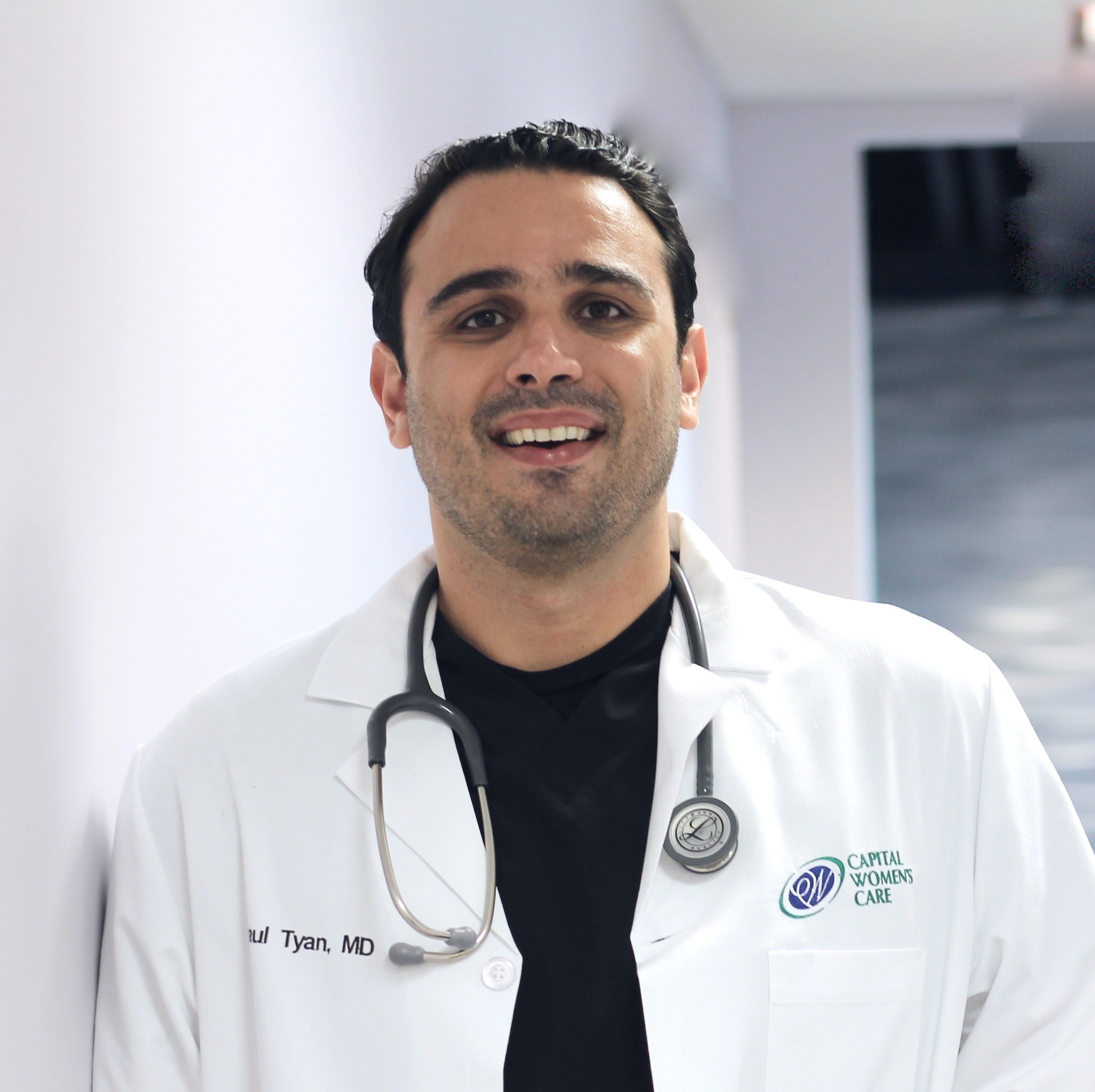
Dr. Paul Tyan
Dr. Paul Tyan, M.D.
Dr Paul Tyan – Endometriosis Specialist, Gynecologist, Minimally Invasive Gynecologic Surgeon
Summary: Dr Paul Tyan is a leading endometriosis specialist and minimally invasive gynecologic surgeon based in Arlington, VA. Known for his patient-centered approach and deep expertise, Dr. Tyan brings clarity and compassion to those navigating the complexities of endometriosis. Patients searching for experienced care often turn to Paul Tyan, or Dr Paul Tyan, for his commitment to evidence-based, individualized treatment plans. With a strong foundation in the latest research, including genetic and epigenetic insights, Dr Tyan endometriosis care emphasizes early intervention and holistic pain management.
He specializes in excision surgery and integrates hormonal therapies, physical therapy, and medication tailored to each patient’s needs. Whether you’re exploring treatment for deeply infiltrative endometriosis or managing persistent pain after surgery, Dr. Paul Tyan offers thoughtful, comprehensive support. With Dr Tyan endometriosis care, patients receive both advanced clinical knowledge and the compassionate guidance they deserve.
City: Arlington, VA, USA
Philosophy: In its most basic definition, endometriosis is the presence of endometrial cells (that form the inner lining of the uterus) outside the uterus. In some patients, those ectopic cells can produce an inflammatory response that is at the origin of various cascades that can lead to pain or scarring. There are multiple proposed theories about the origin of endometriosis. The only certainty is that the origin of endometriosis is multifactorial.
The retrograde menstruation or implantation theory is one of the initial principles of the pathogenesis of endometriosis;however, it has been challenged as the single cause for several years, as evidenced by the occurrence of symptomatic endometriosis in premenarchal and postmenopausal women. Also, by the fact that nearly all patients will have retrograde menstruation, but not everyone has endometriosis.
Most recently, we have had significant advances in the genetic and epigenetic theory of endometriosis. The clonality of endometriosis lesions and the cancer-driver genes that have been identified in deeply infiltrative endometriosis lesions shed light on the genetic component of the disease. Recent work on the epigenetic factors linked to external conditions affecting pluripotent cell behavior in the setting of endometriosis is a promising field set to unveil exciting information.
Keeping up to date with the intricacies of the pathogenesis of endometriosis is crucial to my clinical practice. Many patients will be counseled over the years that surgery is unnecessary at that blocking the menstrual cycle or hormonal suppression is sufficient for “curing” endometriosis. Explaining to patients the complex nature of the disease and the necessity of early intervention, especially in the deeply infiltrative endometriosis subtype, could be a crucial factor in decreasing morbidity and improving the quality of life of my patients.
What type of surgery do you perform for endometriosis?:
Excision
Medication: I recommend a combination hormonal contraceptive (birth control) for post-surgical suppression. In cases where a combination option is contraindicated, I recommend a progesterone-only option.
I recommend treatment with an SSRI, SNRI, or GABA-Analog for patients with central sensitization due to chronic pain secondary to endometriosis.
For patients with pelvic floor tension myalgia, I recommend physical therapy, various muscle relaxers, and trigger point injections or nerve blocks in warranted conditions.
Treatment plans tend to be individualized based on the patients’ presenting symptoms, surgical management, and postoperative course.
Approach to Persistent Pain After Surgery: For some patients, endometriosis excision is sufficient for complete symptomatic relief. However, some patients will still have symptoms after surgery. It is crucial to counsel patients before surgery that endometriosis excision is only one aspect of a comprehensive management plan that should involve central and peripheral pain management, pelvic floor physical therapy, and dietary modification.

Dr. Ulises Armando Menocal Tavernier
Dr Ulises Armando Menocal Tavernier
Dr Ulises Armando Menocal Tavernier – Endometriosis Specialist, Gynecologist, Minimally Invasive Gynecologic Surgeon
Summary: Dr Menocal is a highly skilled endometriosis specialist and gynecologist based in Morelia, Michoacán, Mexico. As a minimally invasive gynecologic surgeon, Dr Menocal provides personalized and compassionate care to women suffering from endometriosis. His approach to the condition is grounded in the coelomic metaplasia theory and the endometrial stem cell recruitment theory, which helps inform his treatment strategy.
Dr Ulises Armando Menocal Tavernier utilizes a range of treatments, including combined oral contraceptives for young women and Dienogest following surgery, to manage symptoms and improve quality of life. For patients with persistent pain after surgery, Dr. Menocal follows a multidisciplinary approach, collaborating with nutritionists, psychologists, and pelvic rehabilitation specialists. In some cases, he may recommend a second-look laparoscopy to assess the effectiveness of treatment.
City: Morelia, Michoacan, Mexico
Philosophy: Coelomic metaplasia
Medication: Combined oral contraceptives in young women for a period of 6 months up to 5 years
Approach to Persistent Pain After Surgery: Patients will remain in a multidisciplinary approach with a nutritionist, psychologist, and pelvic rehabilitation. And in some patients, we will perform a second-look laparoscopy.
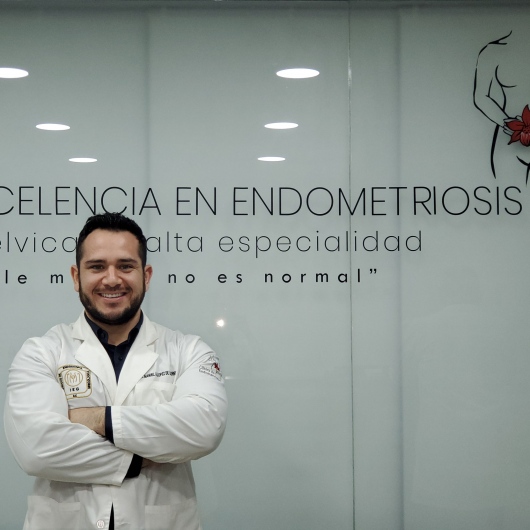
Dr. Manuel Lopez
Dr. Manuel Antonio Lopez de la Torre, M.D.
Dr Manuel Lopez – Endometriosis Specialist, Gynecologist, Minimally Invasive Gynecologic Surgeon
Summary: If you’re looking for expert care in endometriosis, Dr Manuel Lopez is a trusted and compassionate specialist dedicated to helping women live healthier, more comfortable lives. Many patients first discover Dr. Manuel Lopez while searching for top gynecologists under names like Manuel Lopez MD San Antonio or Doctor Manuel Lopez, drawn by his excellent reputation. Though based in Guadalajara, Jalisco, Mexico, Dr. Manuel A Lopez MD San Antonio TX is well known to U.S. patients who travel for his expert care in minimally invasive gynecologic surgery.
Dr. Lopez takes a thoughtful, individualized approach to endometriosis, grounded in both medical science and empathy. He draws on a range of theories, including celomic metaplasia, retrograde menstruation, lymphatic and vascular dissemination, and embryonic origins, as well as genetic and immunological factors, to inform his care.
For treatment, Dr. Lopez typically begins with combined progestins, followed by pure progestins if needed, and rarely, GNRH analogues with add-back therapy. Pain is managed with COX inhibitors, NSAIDs, smooth muscle relaxants, and supportive treatments like multivitamins.
What truly sets Dr. Manuel Lopez apart is his conservative and holistic approach to surgery, which is only recommended for about 30% of patients. His multidisciplinary team includes experts in colorectal surgery, fertility, urology, physical therapy, psychology, nutrition, pain management, and sexology to ensure patients receive well-rounded care.
City: Guadalajara, Jalisco, Mexico
Philosophy:
Medication:
Approach to Persistent Pain After Surgery:
When needed, the treatment always starts BEFORE the surgery, and SURGERY is indicated only in approximately 30% of our total amount of patients. Generally, most of the indications for surgical procedures depend on adhesions, anatomical changes due to nodules or adhesions, deep infiltrating nodules affecting the organs functional tissue(Muscular layers), adenomyosis. We always perform an integral follow-up on patients. Our clinic is constituted by multiple specialties, and we derive before surgery to the affected areas to deep study. When the symptoms continue, depending on the area, they get treated by whoever is demanded (Colo- proctology, Fertility, Urology, Physical Therapy, Psychology/Psychiatry, Nutrition, Pain specialist, Sexology).

